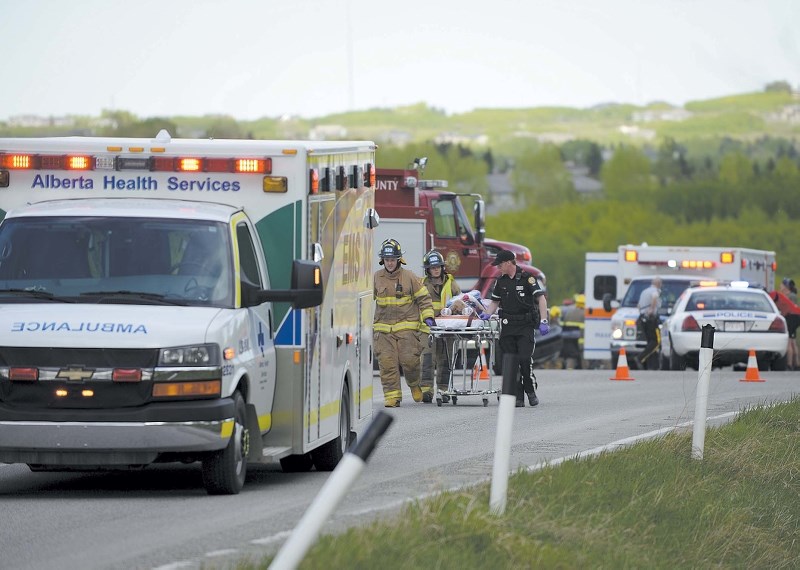On a cold day in a small medical transport plane, Kevin curled forward in an attempt to stave off his nausea. Kevin, who the Cochrane Eagle agreed to keep anonymous, was a paramedic travelling from reserve to reserve in Manitoba operating in a medevac several years ago. The job was taxing and he said he remembers feeling sick regularly. “It was a tiny plane, and usually, like patients are stinky,” he said. “You’re dressed for minus 40 and the sun’s beating in through the windows and you’re so hot on this dirt runway. I was just nauseous all the time.” The experience was one of many during his years as a paramedic that reminds him of the hardships the job as a first responder and the never ending pursuit to find coping strategies. Mental health support has become increasingly at the forefront of health talks. The province recently announced an additional $1 million to go toward mental health support for EMS workers including hiring a new psychologist specialized in trauma and PTSD in first responders. Witnessing others’ traumas and responding to it in a professional yet urgent manner is wearing, Kevin said, and always working on the fly mixed with flip-flopping night and day shifts adds to it. “That’s part of the grind too – you’re bagged from shift-work,” he said. “I think for paramedics there’s a lot of pieces to the puzzle for mental health and shift works is just one of them. It’s hard and you’re missing stuff. Like this (was) my first Christmas off in four or five years.” Another aspect of stress for emergency medical responders is being first to arrive at a scene, he explained. “It’s maybe not fully understood by hospital staff or maybe the public that sometimes we’ll bring a patient in to emerge. If it’s bad, there’s a team there that could be 10 people like doctors or therapists, nurses. And it’s a really sterile environment, and they just go to work and they take over. But I don’t think they understand that before we got (to the hospital), it was just usually one or two of us working on it in total chaos. We don’t get a sterile environment,” he said. “You never really know what you’re walking into. Which, for me, actually causes the most anxiety – it’s going to a call rather than being at a call. Because when it comes over dispatch, it’s not always accurate. So you have to think if it’s the worst thing, you have to prepare, not prepare yourself emotionally, prepare yourself clinically, like, what do I need to do... and then you show up. And usually it’s not the worst thing. But I find that period from getting the call to going to the call ... then when usually when I see the patient, it all goes away because we’re trained to do the work.” Such was the case when he was called to the scene of a double homicide while working on the east coast. He said he went into it mechanically, only keeping in mind what he had to do medically. It was dealing with the aftermath that was tough. “Sometimes the scene is more chaotic than the actual patient – screaming family members. In that case there was linoleum floors and I almost slipped going in because there was so much blood everywhere.” But he said there are other stories that come across less extreme but manage to hit him harder, like being brought to tears while transferring an older patient that reminded him of his dad. Kevin, who now takes antidepressants, said while he has reached out for mental health support in the past, he said he also looks to the outdoors and exercise to relieve his stress from the often tumultuous line of work. “Being outside exercising helps. Eating right helps, and then having a community of people around like healthy people, not like binge drinking friends,” he said.




